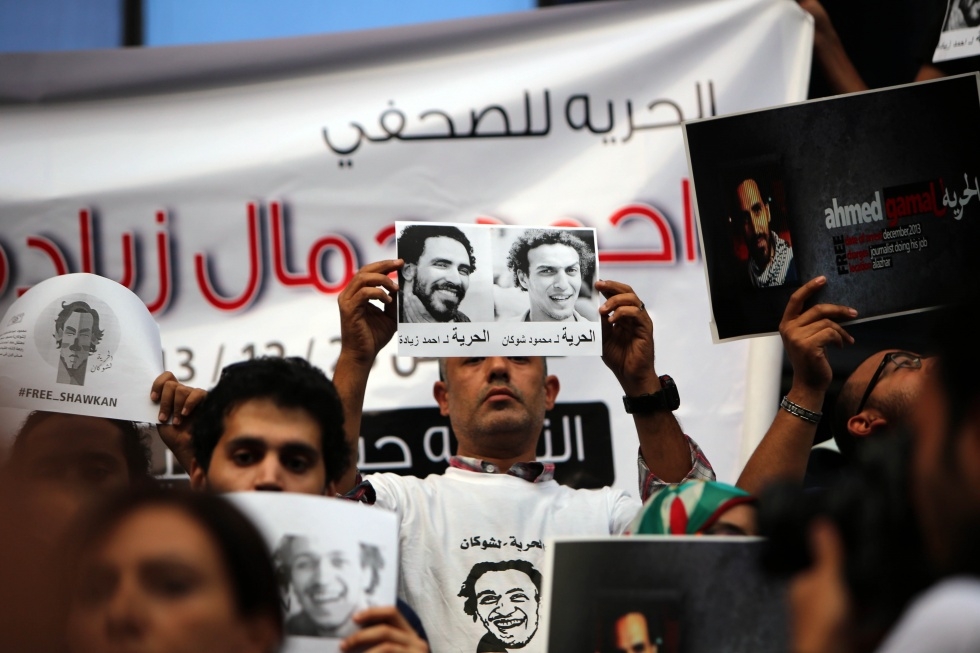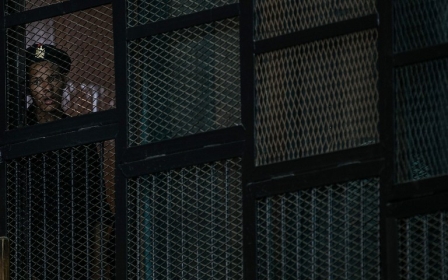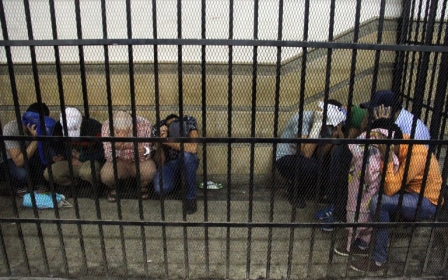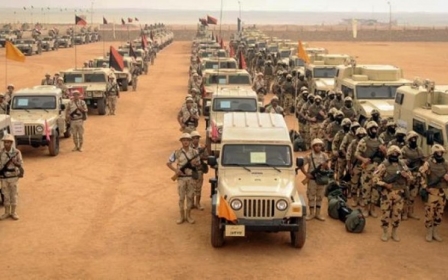Egyptian journalists condemn newspaper editors' loyalty pledge

More than 400 journalists have signed an online statement condemning the decision by Egyptian newspaper editors to refrain from criticising the government.
Last week, the heads of 17 state and private owned daily newspapers publicly announced they would stop publishing "statements undermining state institutions".
"We assert our commitment to freedom of speech,” they wrote, “but we reiterate our rejection of attempts to doubt state institutions or insult the army or police or judiciary in a way that would reflect negatively on these institutions' performance."
The announcement prompted a group of journalists, led by the Egyptian Journalists Syndicate, to launch a petition condemning the move as a “setback to the freedom of press".
“The terrorists will win when they can control the media, and the state will fall when it agrees on the same goal,” the journalists said in the petition, posted on social media on Sunday.
“Confronting terrorism is a duty and an honour, and it has nothing to do with the nationalisation of the press or the voluntary abandonment of freedom of speech.”
A number of journalists also told Egyptian news site Madr Masr that they would refer the head of the Journalists Syndicate, Diaa Rashwan, to a disciplinary committee for attending the editors meeting without first consulting the Syndicate’s general assembly.
Khaled El-Balshi, a member of the Syndicate’s board, said that little had changed since the fall of former dictator Hosni Mubarak’s autocratic government in 2011.
"The state has a clear stance against the media, thinking that it was behind 25 January and 30 June," said El-Balshi, referring to the mass protests which ousted presidents Mubarak and Mohammed Morsi.
"The truth is that the regime's policies were behind the uprisings . . . policies that are very similar to those adopted now."
Speaking to Associated Press, he described the editors’ move as “an attempt to make newspapers speak with one voice".
"The move by the editors of the newspapers was like establishing a political party in support of the regime,” he said. “They want to end diversity."
The Journalists Syndicate has been criticised by both members and non-members for failing to respond forcefully enough to abuses of press freedom since the rise to power of former Field Marshall Abdel Fatah al-Sisi in June 2013.
The Syndicate’s financial dependence on the state has also come in for criticism, as well as its failure to prevent the dismissals of dozens of journalists from national newspapers.
A campaign for the release of three Al-Jazeera journalists, #FreeAJstaff, has focused international scrutiny on the increasing autocracy of the Egyptian state with regard to journalists and other media workers
Baher Mohamed, Mohamed Fahmy and Peter Greste have spent more than 300 days in Egyptian jails after being sentenced to seven years in jail for allegedly aiding the Muslim Brotherhood and spreading “false news” in Egypt, claims denied by the journalists and Al-Jazeera.
The International Federation of Journalists condemned the convictions as “bizarre”.
“The verdict of the court, despite the lack of evidence and bizarre court proceedings over more than a dozen hearings, is an appalling attack on press freedom and carries an implicit threat to all media working in Egypt,” said IFJ Senior Vice President, Younes Mjahed.
“It is clear that journalists covering the complex political and social situation in Egypt must not be blamed or made responsible for incidents that occur. These journalists were doing their job, as is the case in other parts of the world."
According to the Association for Freedom of Thought and Expression, an anti-censorship group, over 80 journalists are incarcerated in Egypt on various charges of illegal assembly and publishing false news.
New MEE newsletter: Jerusalem Dispatch
Sign up to get the latest insights and analysis on Israel-Palestine, alongside Turkey Unpacked and other MEE newsletters
Middle East Eye delivers independent and unrivalled coverage and analysis of the Middle East, North Africa and beyond. To learn more about republishing this content and the associated fees, please fill out this form. More about MEE can be found here.




